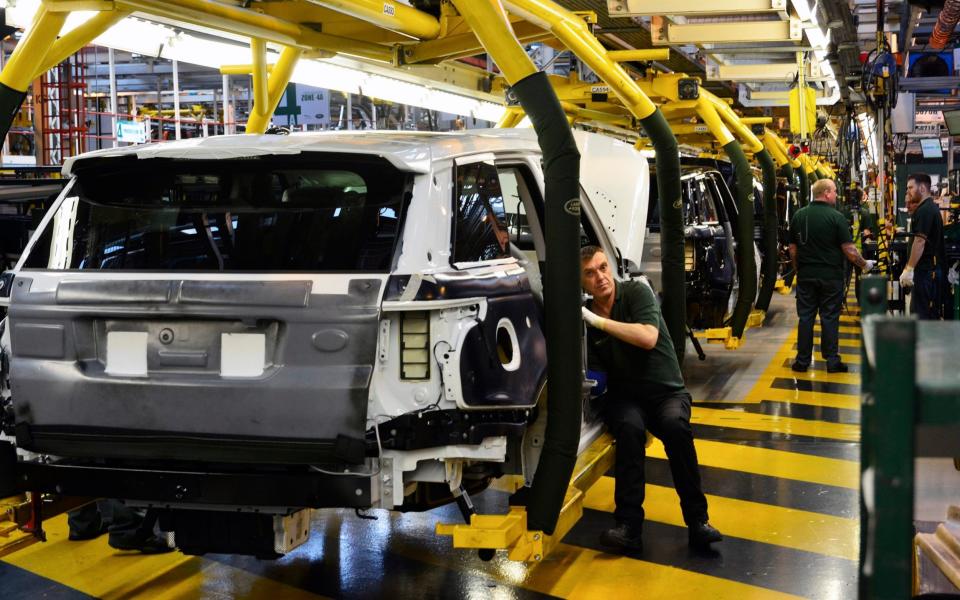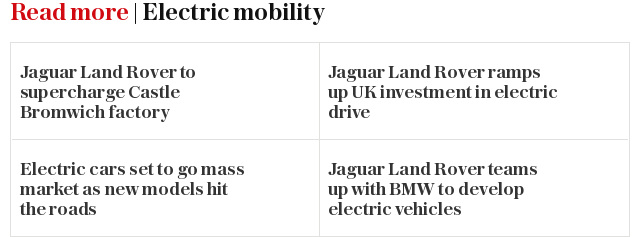Jaguar Land Rover's proposed government bailout – and its chances of success

British carmaker Jaguar Land Rover has gone to the Government for support to steer it through the coronavirus pandemic.
The company, owned by India’s Tata Motors, is Britain’s biggest car manufacturer employing more than 38,000 people making luxury Jaguar saloons and 4x4s under the Land Rover and Range Rover brands, such as the new Defender.
While the business has been a crown jewel of British industry for decades, coronavirus has savaged car sales and left the automotive industry desperate for a reprieve.
This weekend, it was reported that JLR had gone to the Treasury for a state support package thought to be in excess of £1bn. Sky News reported it is the largest bespoke loan package request from a private company in the crisis.
A spokesman said: “JLR is constantly in discussion with Government on a whole range of matters relating to COVID and we will not discuss details which are confidential and private.”
What has happened at JLR? And is the Government likely to take a stake in it?
What is the state of JLR’s business?
Like many carmakers, JLR has been forced into drastic changes by coronavirus.
The car firm is owned by India’s Tata, which bought it for £1.1bn from Ford in 2008, seen as a steal at the time.
Around 20,000 of its staff have been furloughed because they cannot work in factories or shop floors and are being paid for by the taxpayer. This week, around 2,000 staff returned to work for the first time since the crisis erupted.
Car sales had been suffering before the crisis but the downturn in the first three months of the year exacerbated the industry's woes. In March, JLR reported sales in China, a major luxury car market, had fallen by 85pc. In its main financial results in April, JLR was reporting global sales were down 31pc to 110,000 vehicles.
Before the pandemic, the company had plenty of cash, according to its latest financial results. It had around £3.6bn of cash and short-term investments. It had also previously undertaken cost cuts designed to save £1.1bn. However, ratings agencies have recently downgraded their assessments of JLR’s debt. In April, Standard & Poor downgraded JLR’s rating and estimated the company could be burning through £1bn every month.
“We estimate that a one-month shutdown of its UK plant and severely reduced production and volumes [over the next three months] will require JLR to burn about £1 billion of cash per month to keep operational,” the ratings agency said.
What is JLR asking for?
JLR is reportedly seeking a loan in excess of £1bn. The loan request is one of many being considered by the Department of Business.
Such a deal could see the company accepting a loan which ultimately converts to equity in the company, leaving taxpayers with a major stake in its biggest car firm, according to David Bailey, a professor and automotive industry expert at Birmingham Business School.
“Having the Government in there I don’t think would necessarily be a bad thing and if it provided them a firmer financial footing it would help them,” he said.
Professor Bailey said it would not be dissimilar to car companies in Germany and France, where governments hold substantial stakes in some of their biggest automotive firms.
Will the Government provide emergency funding?

While the Government has provided some one-off bailout packages, notably to easyJet, it has normally tried to push companies to exhaust all other funding options before it considers a bail-out.
For now, JLR has paused work on its new XE and XF Jaguar models and on an all electric saloon. It is focused on its core Defender and Range Rover models.
That said, according to Prof Bailey, with government plans to ramp up the auto sector post-Brexit, and hopes for electric vehicles, funding the company and taking an equity stake could make strategic sense for the UK.
The challenge for JLR, he notes, is the company is too small to survive on its own. Tata has been looking to offload a stake in the company for some time, but JLR would need a partner to do business with. “JLR is seen as too small to go on its own,” he says.

However, with longer term UK ambitions to become a player in electric battery technology and JLR planning to invest £4bn on UK R&D, supporting the car company might be a logical move, Bailey says. “A £1bn investment would give the government a decent stake in the firm and presumably a seat on board of directors which could be important,” he says.

 Yahoo Finance
Yahoo Finance 